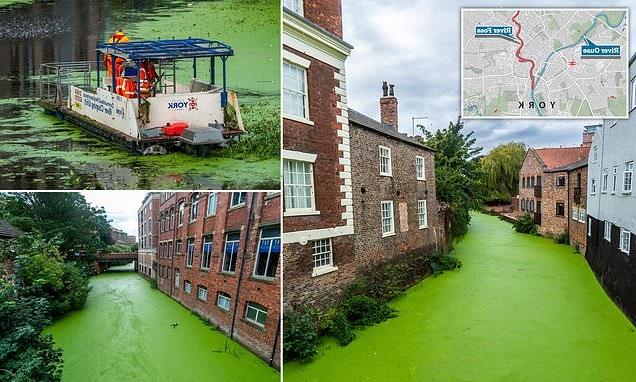Written by Lauren Geall
As Stylist’s digital writer, Lauren Geall writes on topics including mental health, wellbeing and work. She’s also a big fan of houseplants and likes to dabble in film and TV from time-to-time.
In painting the suggestion that misogyny should be made a hate crime as a frivolous exploit that will criminalise ‘insults’, Dominic Raab has demonstrated just how little he knows about the problem we’re facing, writes Stylist’s Lauren Geall.
The sentencing of Sarah Everard’s killer Wayne Couzens at the Old Bailey last week, mere days after a man was charged with the murder of 28-year-old teacher Sabina Nessa, has led to renewed debate about how to tackle the issue of male violence against women – including whether or not misogyny should be made a hate crime.
Back in March, it was announced that police forces across the UK would be asked to record data on crimes motivated by sex or gender on an “experimental basis”, but the law has not yet been updated to add misogyny to the list of hate crimes which can be prosecuted – a change which would, among other things, give judges the power to hand down harsher sentences in cases where someone had committed a crime against a woman on the basis of gender.
As one of the central focuses of the Law Commission’s ongoing review into hate crime legislation, the conversation surrounding the criminalisation of misogyny has been happening for many years now. But despite this, prominent government figures have repeatedly demonstrated how little they understand about what campaigners are asking for.
Just yesterday, Boris Johnson ruled out making misogyny a hate crime because he said it would “widen the scope” of what the police are required to do. And this morning, during an interview on BBC Breakfast, Deputy Prime Minister Dominic Raab not only confused the meaning of misogyny but suggested that making it a hate crime would simply criminalise “insults”.
“I think insults and misogyny is of course absolutely wrong whether it’s a man against a woman or a woman against a man, but I don’t think that will tackle the problem in the cases like either the Sarah Everard case which is very serious and we take very seriously, or the wider challenge of getting more prosecutions through to a successful conviction for violence against women and girls,” Raab told BBC Breakfast’s Sally Nugent.
“I understand why people raise it, it’s a legitimate issue and debate to have. But I don’t think that will solve the problem that we’ve got or indeed give confidence to the many women who after the Sarah Everard case I think are very fearful, anxious and need positive reassurance and the kind of action that will fix the problem, and that’s what we’re focused on.”
Raab continued: “Reducing the bar and saying actually insults should be criminalised I don’t think will deal with what women across this country are fearful of which is the risk of life or limb, the risk of intimidation and the risk of harassment. All of those things are already criminal, the question is how we enforce those laws much more effectively and much more sensitively to women.”
Not only is Raab’s failure to understand the dictionary definition of misogyny (“a hatred, dislike or mistrust of women”) worrying considering his position as deputy prime minister and secretary of state for justice, his response also demonstrates a number of harmful misconceptions about what making misogyny a hate crime would actually do in the fight to eradicate male violence against women and girls.
First of all, the suggestion that making misogyny a hate crime would criminalise “insults with a sexist basis” is woefully inaccurate – and plays on a stereotype which has long been used to discredit the fight to get the law changed.
Not only is misogyny not the same as sexism (sexism is simply the prejudice, stereotyping or discrimination of women on the basis of sex, whereas misogyny refers to a much more deep-rooted dislike or contempt for women), but campaigners calling for misogyny to be made a hate crime are not suggesting that the police should arrest people for wolf-whistling or criminalise ‘get back in the kitchen’ jokes, as many newspapers and male talk show hosts have tried to suggest in the past.
In fact, recording misogyny as a hate crime wouldn’t criminalise any behaviours that aren’t offences already – instead, it would allow the police to collect better data and paint a clearer picture of how women are being treated on the UK’s streets, as well as giving judges sentencing power.
Raab’s suggestion that making misogyny a hate crime won’t do anything to tackle the issue of male violence against women also misses the point. As important as it is to ensure that convictions for male violence against women are treated with the respect and gravity they deserve (only one in 70 reports of rape in England and Wales currently results in a charge, let alone a conviction), failing to deal with the root cause of male violence against women – aka misogyny – will simply allow these behaviours to continue.
Indeed, as Ella Smillie, former head of policy and campaigns at the Fawcett Society, previously told Stylist: “We need to recognise the serious damage misogyny does – it is at the root of violence against women and girls. [Making misogyny a hate crime] would mean we could recognise in law the additional harm those crimes do to women across society, and support the police in tackling them.”
As frivolous as Raab seems to think the idea of criminalising misogyny is, the fact of the matter is that misogyny does and will continue to kill unless something is done to tackle it. Attitudes fuel actions, and without acknowledging that uncomfortable truth, we’ll continue to see acts of male violence against women and girls dominate the headlines.
To find out more about what Stylist is doing to help tackle violence against women and girls in the UK, you can check out our A Fearless Future campaign.
Images: Getty
Source: Read Full Article


